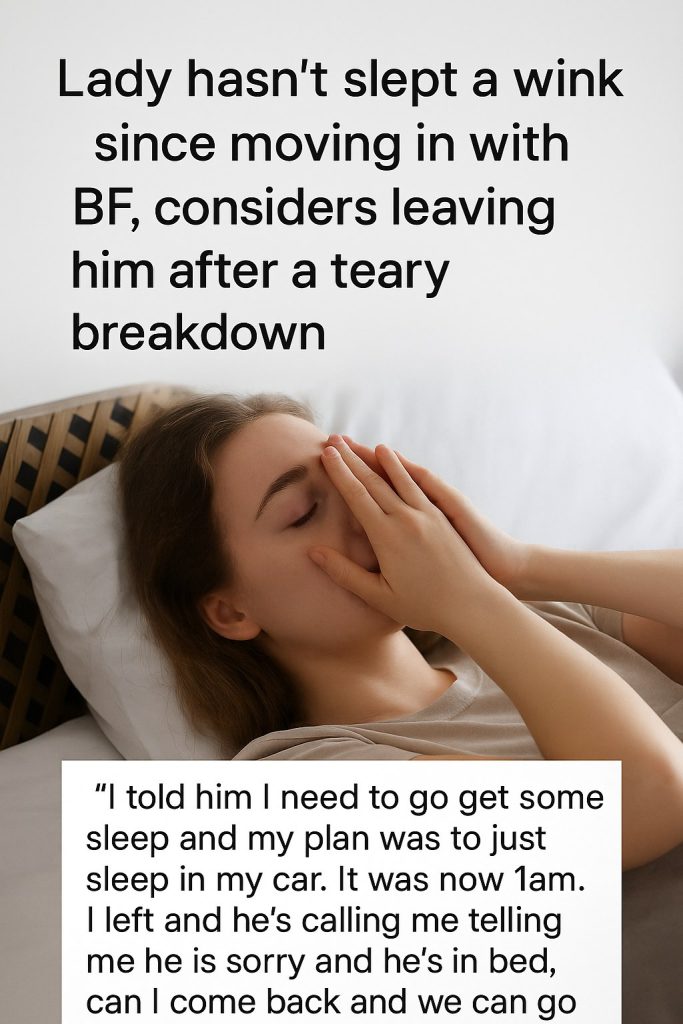For many, moving in with a significant other marks an exciting new chapter. However, for one woman, the experience turned into a deeply challenging ordeal as she found herself unable to sleep a single night since relocating with her boyfriend. Her ongoing sleep deprivation has led to intense emotional distress, culminating in a tearful breakdown and serious consideration of ending the relationship.
The story recently gained attention on social media, where the woman described how, from the very first night, rest became elusive. “I haven’t slept a wink since moving in with him,” she shared tearfully. The chronic lack of sleep has left her mentally and physically exhausted, impacting her wellbeing and daily functioning.
While initial assumptions might point to typical adjustments when merging lives, experts explain that sleep disturbances in couples can arise from numerous factors. Differences in sleep schedules, snoring, bedroom environment, unexplained stress, or underlying relationship tensions often play significant roles.
In this case, the woman revealed that she struggled to communicate her profound need for rest to her boyfriend. She eventually told him, “I need to go get some sleep,” signaling her desperation for relief. Despite her efforts, the ongoing disruption to her sleep routine has led to overwhelming anxiety and emotional pain.
Sleep specialists emphasize that insufficient sleep over extended periods can impair emotional regulation and heighten feelings of sadness or frustration. “Lack of sleep is physically and emotionally draining. When compounded by relationship stress, it can become a catalyst for a breakdown,” an expert noted.
Relationship counselors also highlight the importance of open dialogue regarding living arrangements and personal needs. Adjusting to cohabitation requires patience and empathy from both partners, especially when sleep disturbances arise. Simple solutions might include creating a more sleep-conducive bedroom environment, setting boundaries around sleep times, or seeking medical advice if sleep disorders are involved.
According to comments from others who have faced similar challenges, cohabiting couples often experience an adjustment period that includes disrupted sleep but usually find ways to adapt. However, when communication falters, these issues risk escalating into deeper grievances.
The woman’s story has resonated widely, sparking conversations about the critical but often overlooked role of quality sleep in romantic relationships. Many social media users empathize with her pain, urging her to prioritize her health and wellbeing, whether that means setting firm boundaries, seeking professional help jointly, or, as a last resort, reevaluating the relationship.
This case serves as a poignant reminder that moving in together is not only about sharing space but also about nurturing both partners’ emotional and physical needs. When foundational aspects like sleep are compromised, the impact reverberates far beyond the bedroom.
As the woman continues to navigate this difficult phase, her story encourages couples everywhere to openly discuss sleeping habits, remain patient during adjustment periods, and seek solutions before exhaustion takes a toll on love and mental health alike.



